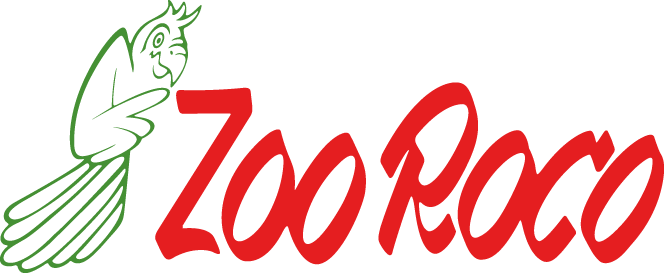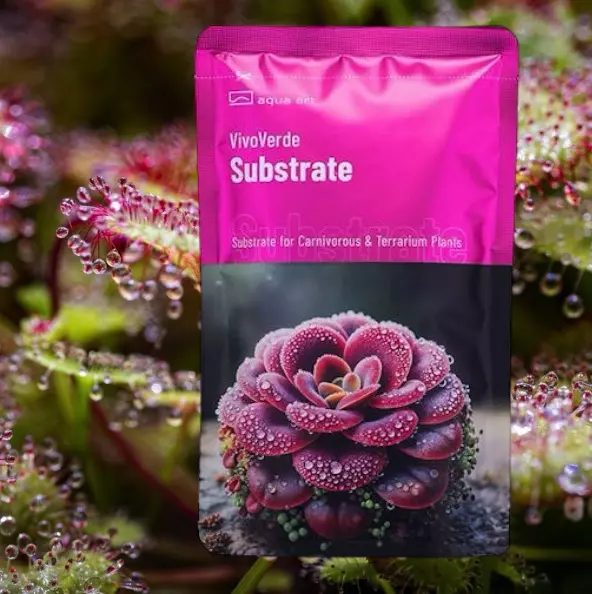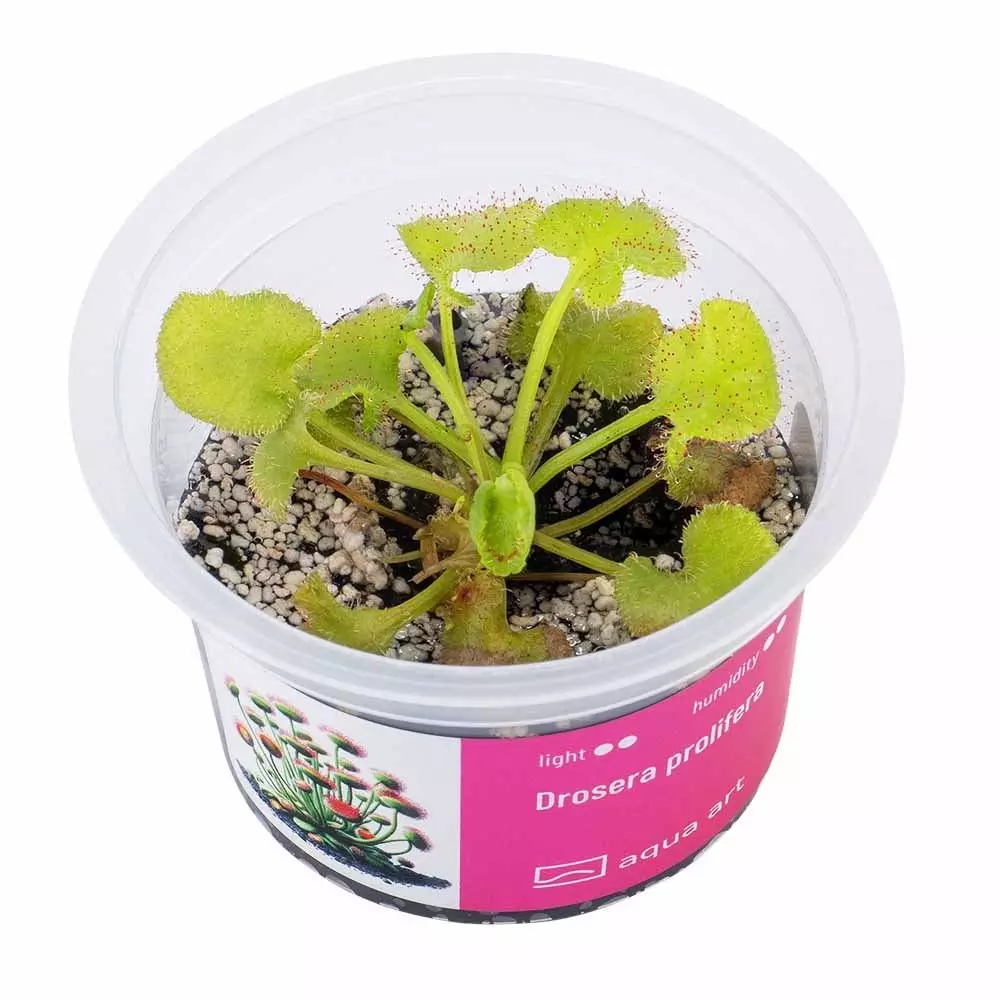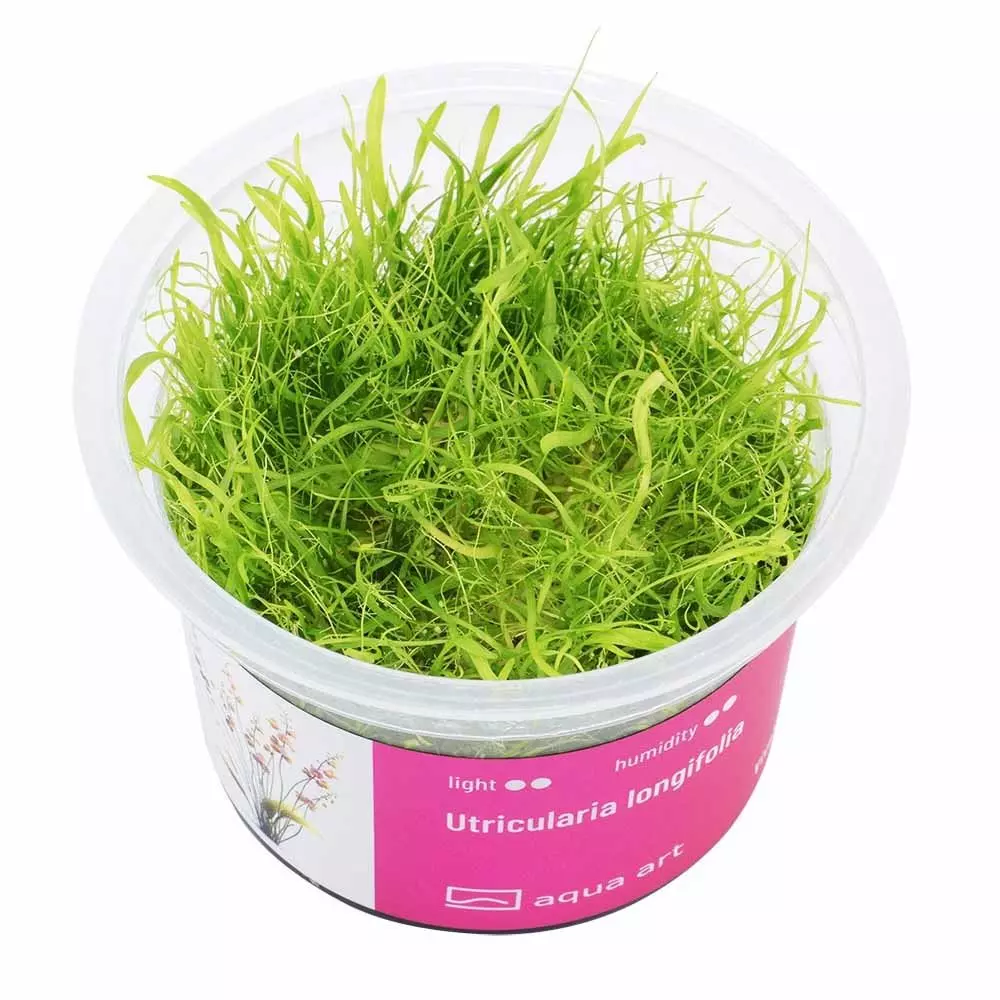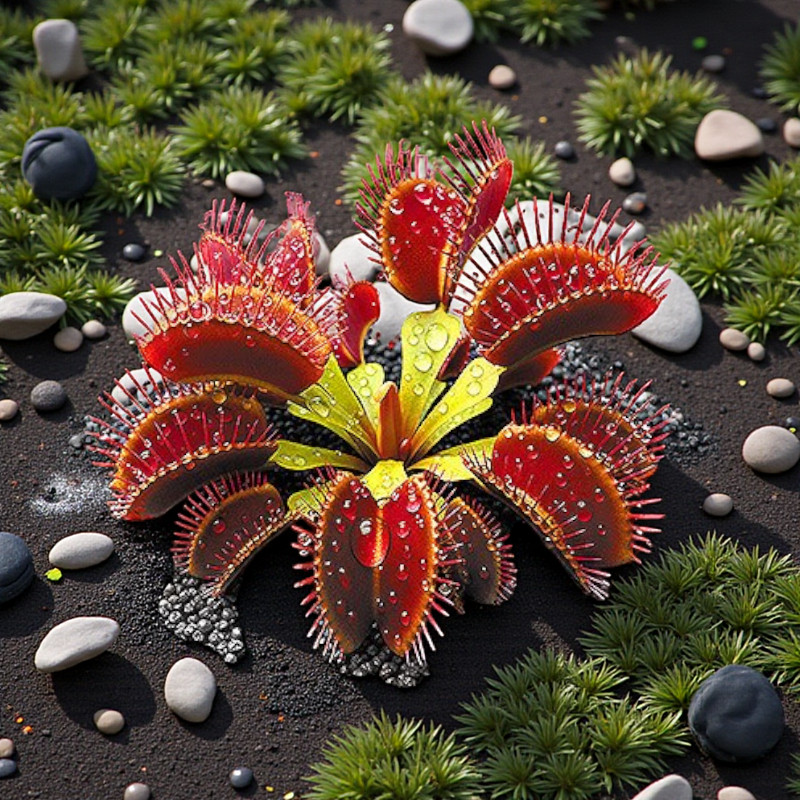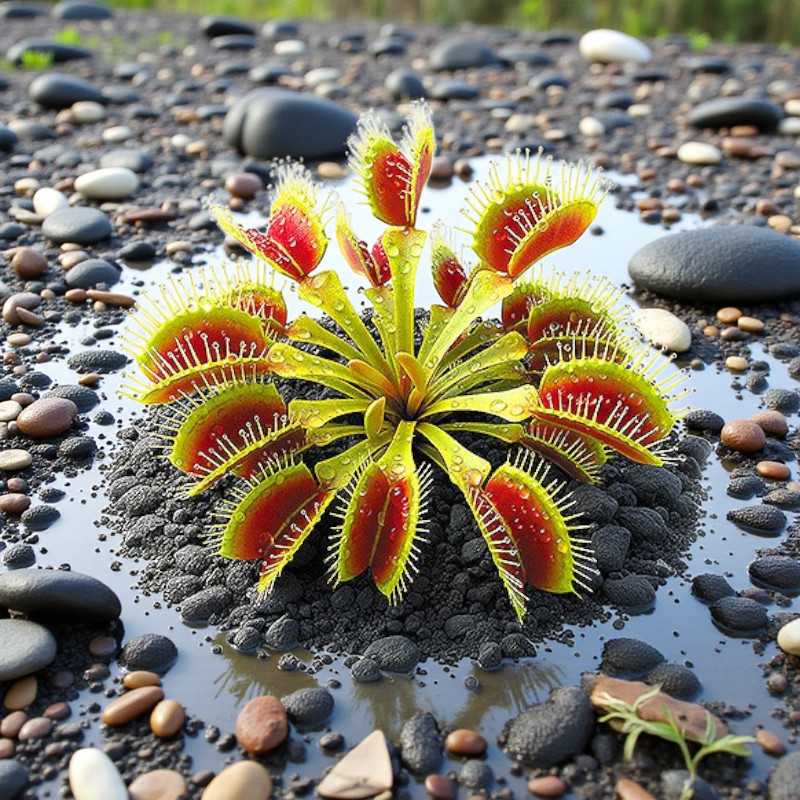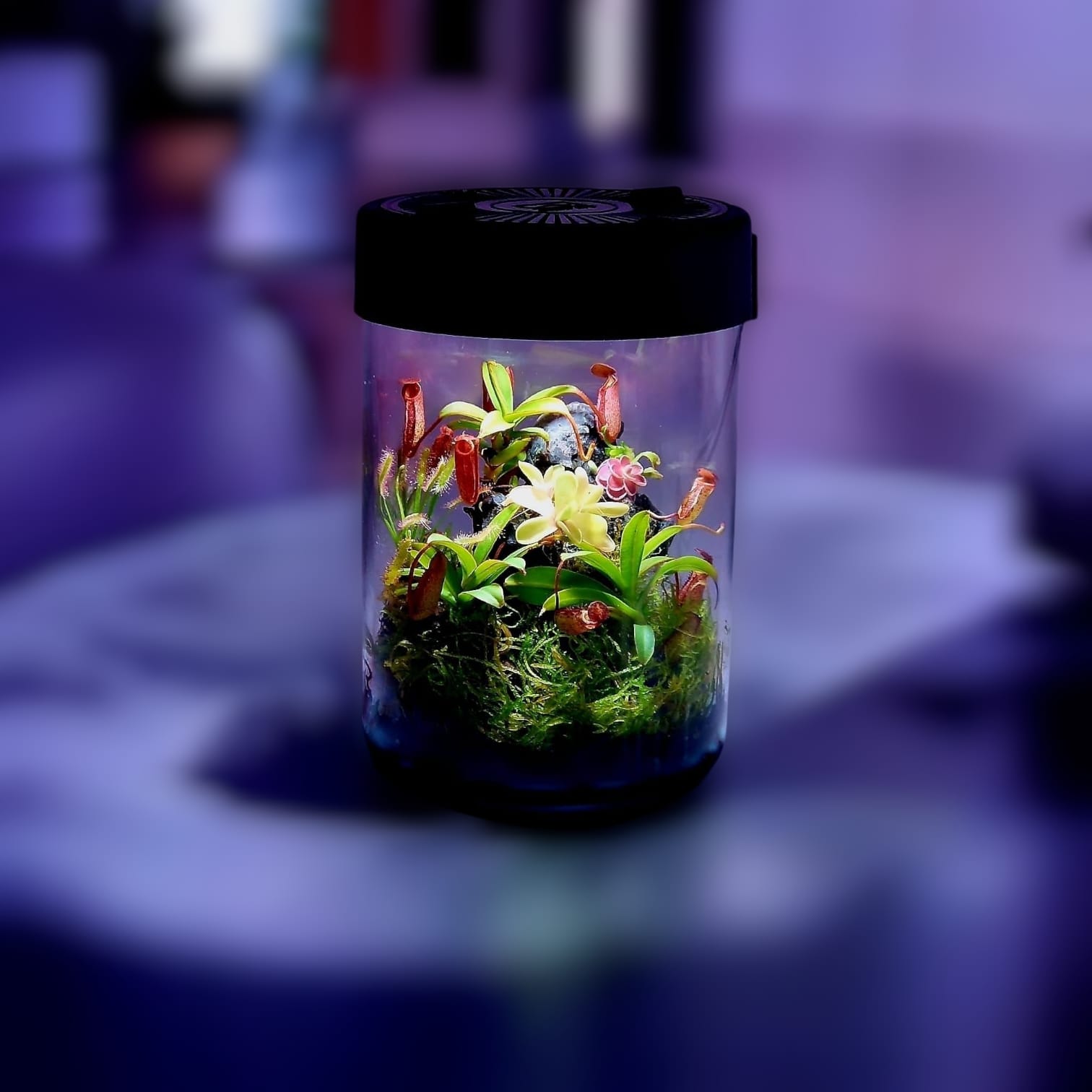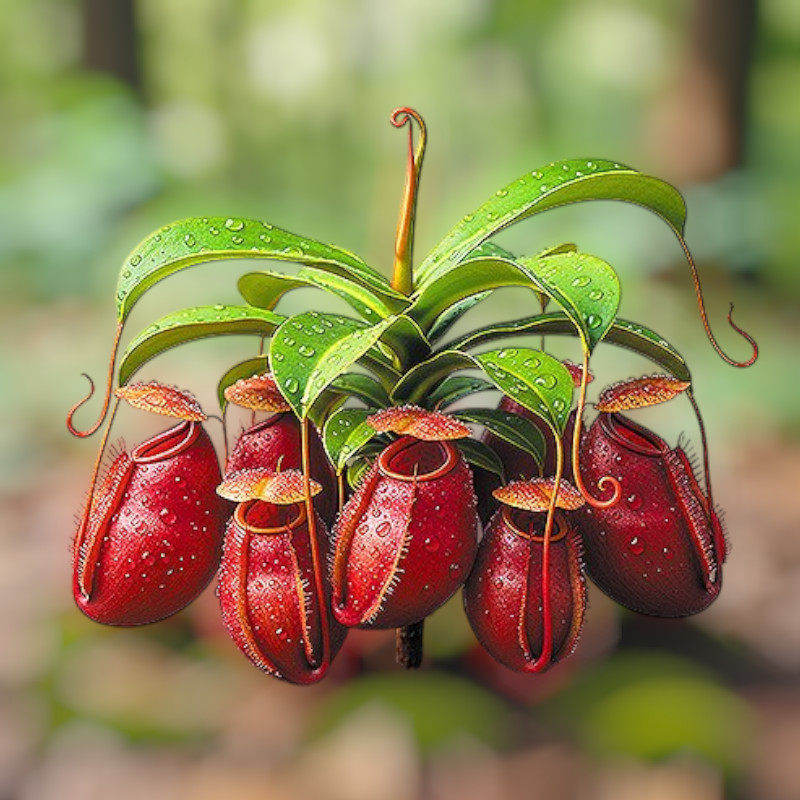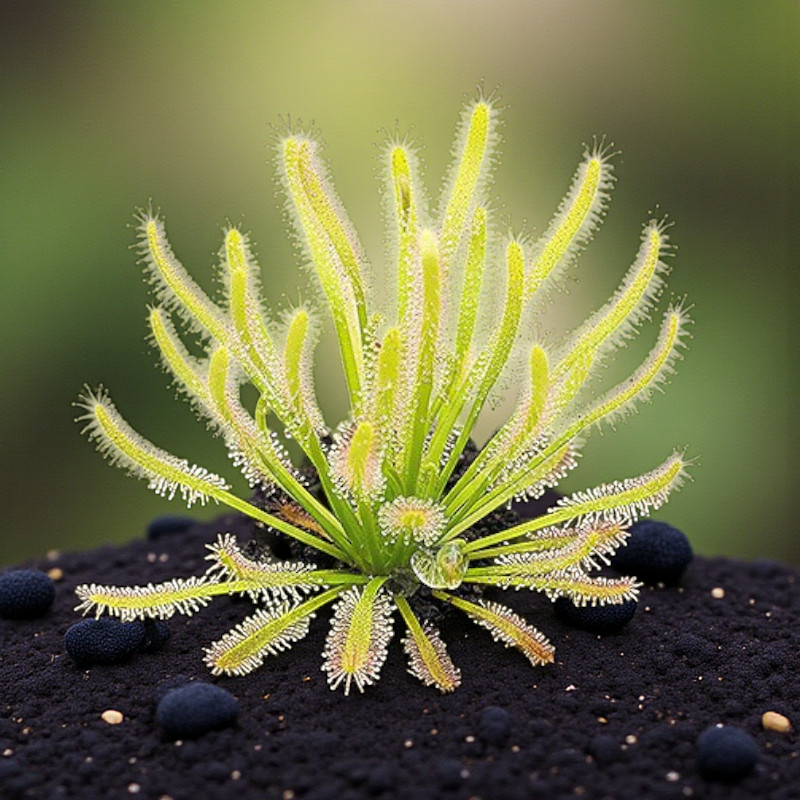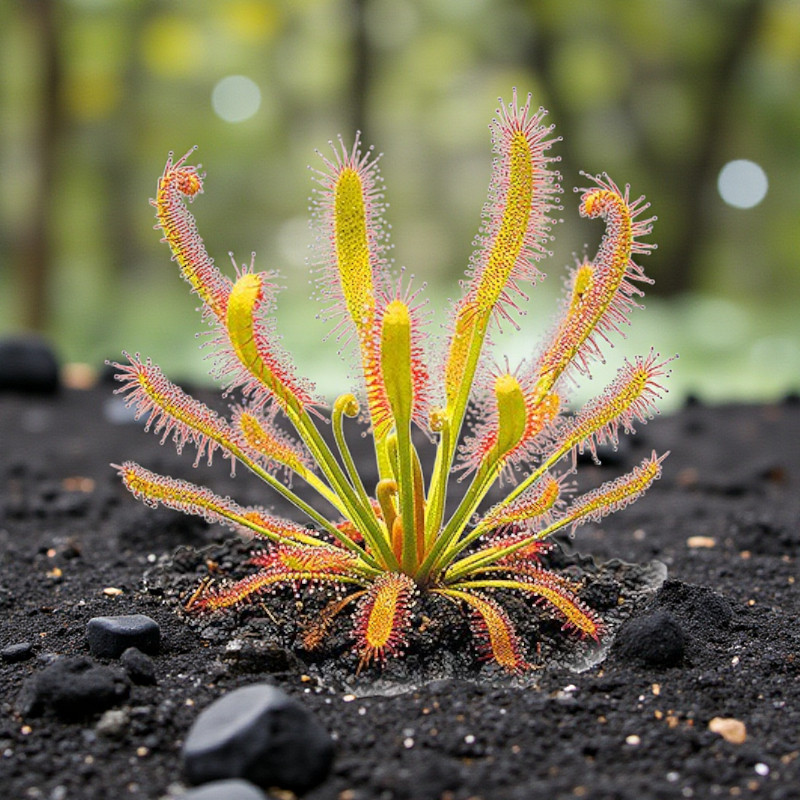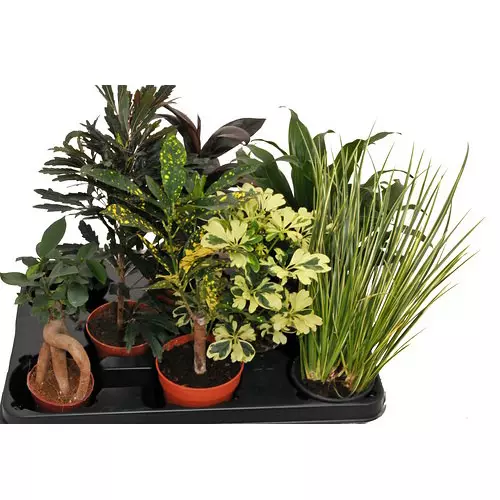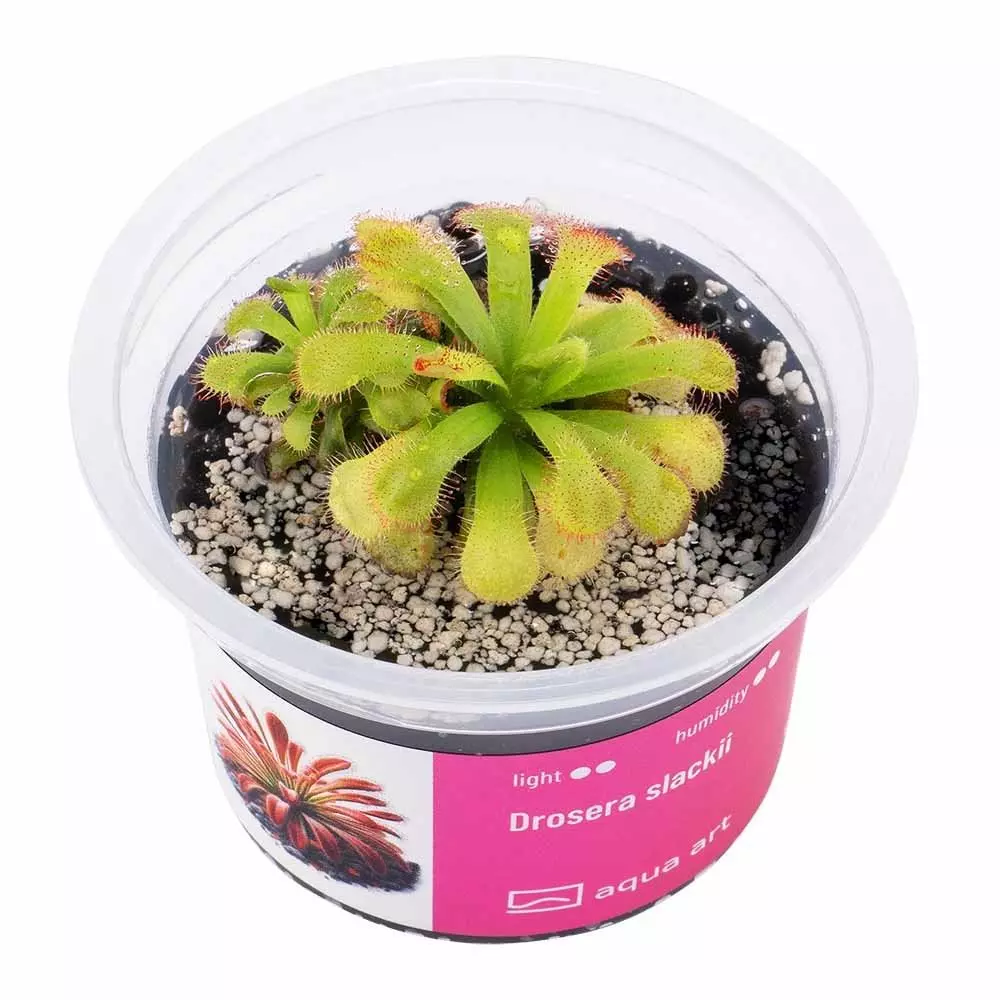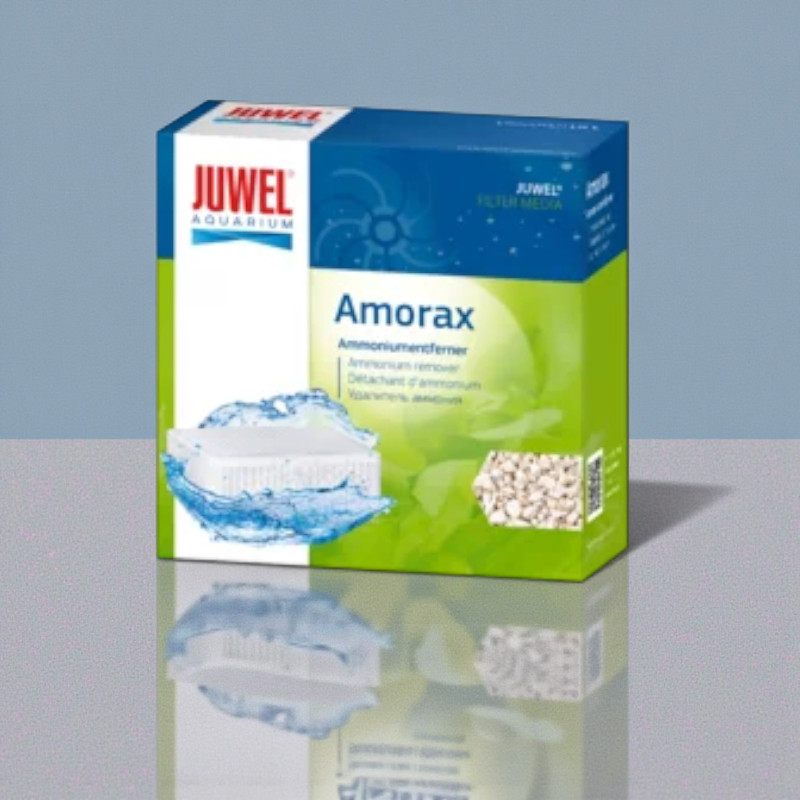
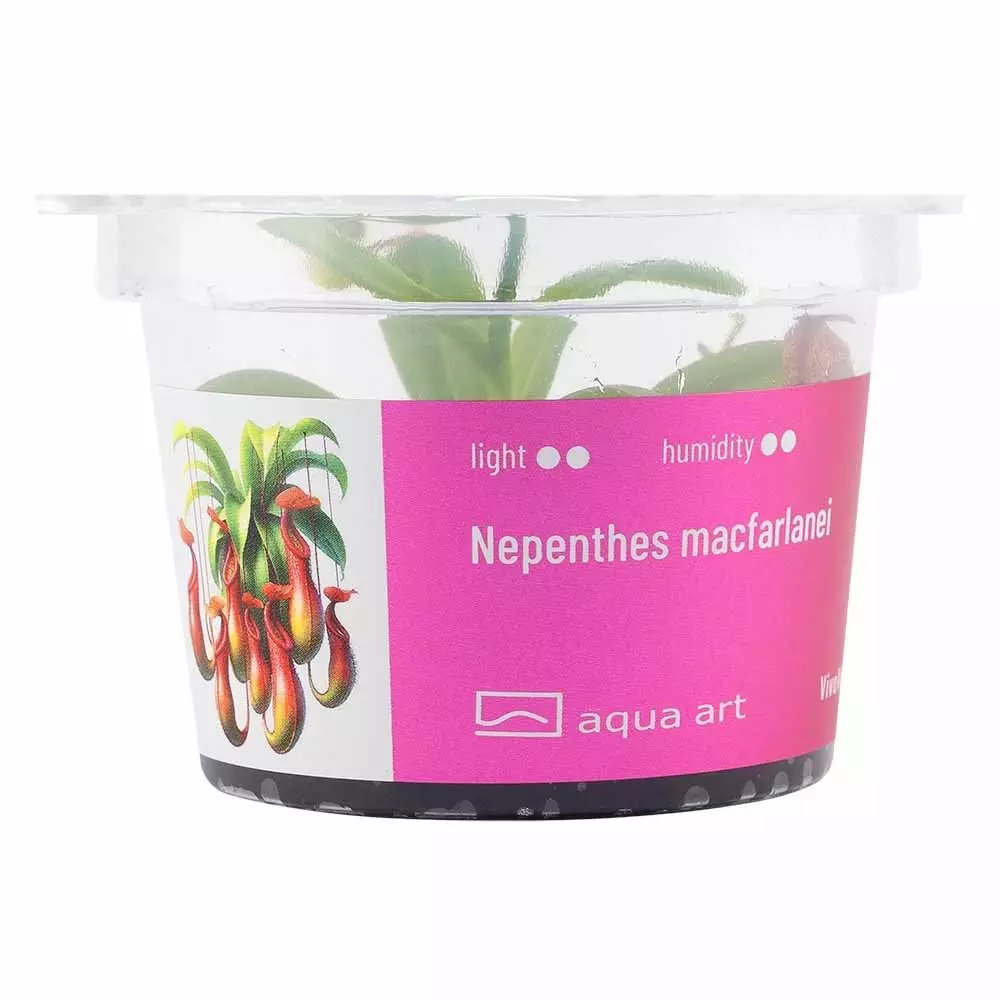














CHF 16.90
Stock: 1
Available, delivery time: 1-3 days

Carnivorous plant - Nepenthes macfarlanei
- supplied in an in vitro cup
- demanding
- Pots up to 15cm tall - climbing plant up to 4 meters high
- Bright spot without direct sunlight
- Humidity: 70-90%
- Temperature: 20-30 °C during the day and 15-20 °C at night
size:
The slow-growing plant climbs over 4 meters high, forms leaves usually 8 cm apart and has a fairly thick trunk
Light:
Nepenthes macfarlanei prefers bright, diffuse light. It grows best in partial shade, where it is protected from direct sunlight, which can burn the leaves.
Substrate:
The best substrate for this plant is a mixture of sphagnum peat, perlite and pine bark in a ratio of 2:1:1. The substrate should be well-drained and slightly acidic (pH 4.5-5.5).
Nepenthes macfarlanei needs to be watered regularly to keep the substrate constantly moist, but not wet. It is best to use distilled water or rainwater, as the plant is sensitive to the mineral salts
Pitcher plants generally do not require additional fertilization as they absorb nutrients from the insects they catch. At home, a very diluted plant fertilizer can occasionally be added to the watering water.
High humidity is crucial for the proper development of Nepenthes macfarlanei. The humidity should be between 70 % and 90 %. Regular spraying and the use of foggers is recommended.
In the home, this plant thrives best in the bathroom if it is showered daily.
This plant thrives well in moderate to warm temperatures. The optimum range is 20-30 °C during the day and 15-20 °C at night. Large temperature fluctuations should be avoided.
The plant propagates by seed. In cultivation, this also works with cuttings.
1 of 1 reviews
1 out of 5 stars
Login
22 January 2025 18:45
Bin etwas enttäuscht, aber mit etwas glück kommt sie durch
Sehr schwache Pflanze erhalten, die nicht gut in der Nährlösung haftet. Hochlandform die im winter gerne etwas kühler braucht ca 10-15°C
Customers also bought
Similar products
Customers also viewed
